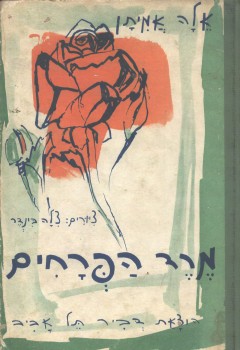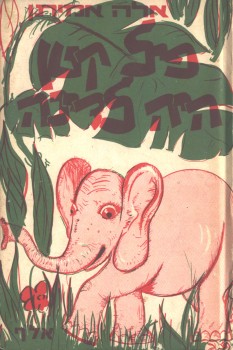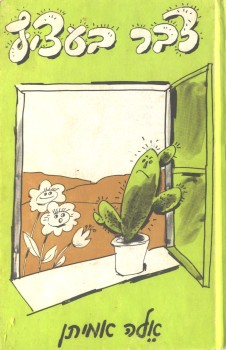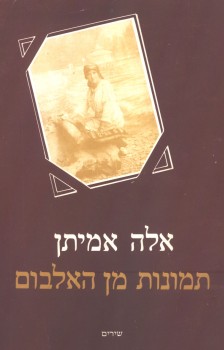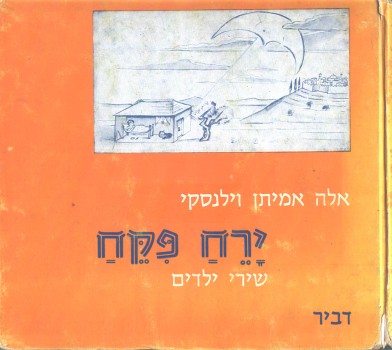 Teadus ja Kunst
Teadus ja KunstНаука и Искусство
Science and Arts
 Teadus ja Kunst
Teadus ja Kunst
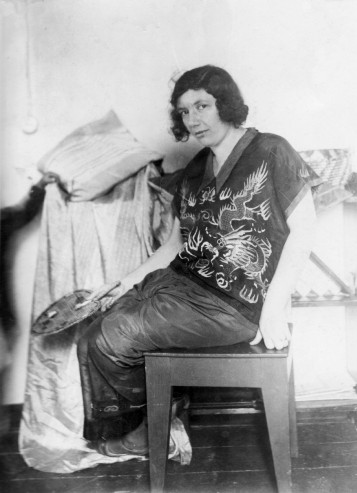 Ella Amitan, the author of the first children's books in Hebrew, was born on 14/4/1893 in Yuryev, Estonia (today Tartu). In 1911 she graduated the Yuryev Pushkin gymnasium for girls. Then studied in the Levinovich dentists school, which she graduated in 1914. In 1918-19 she was a medical student in the Tartu University. From 1920 - an english language teacher in the russian gymnasium.
Ella Amitan, the author of the first children's books in Hebrew, was born on 14/4/1893 in Yuryev, Estonia (today Tartu). In 1911 she graduated the Yuryev Pushkin gymnasium for girls. Then studied in the Levinovich dentists school, which she graduated in 1914. In 1918-19 she was a medical student in the Tartu University. From 1920 - an english language teacher in the russian gymnasium.
She was a member of the Yuryev Working Palestine organization "Ha'Halutz" (the chairman was her brother Leib Vilensky) , and already since 1921 she intended to emigrate to Palestine.
She completed her studies in Switzerland and Germany and in 1925 came to Palestine, which was under Britain rule in the early 20s. She fluently spoke no less than seven languages: Yiddish, Russian, Estonian, German, French, English and Hebrew.
Around forty years Ella worked as an officer in Keren Ha-Yessod, an organization that bought land in Eretz Israel from Arabs and under the law of the British authorities transferred them to new owners: Jewish cooperatives and enterprises.
From her late 20-s Ella had published short poems, mainly for children and school pupils in the Hebrew press and had signed them "Ella Vilensky". Later she accepted her mother's name Amitan, because in this name the Hebrew root can be clearly heard: amit – close friend.
In the late 30s and in the 40s Ella Amitan, and later a few of her colleagues,
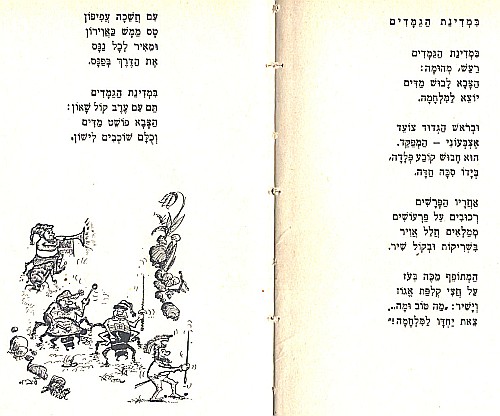 actually created a new branch of literature. In the ancient period, to say nothing of the long Diaspora period, there wasn't such the genre, and the Hebrew children's literature was virtually non-existant.
actually created a new branch of literature. In the ancient period, to say nothing of the long Diaspora period, there wasn't such the genre, and the Hebrew children's literature was virtually non-existant.
In the 50-60s some verses of Ella's became popular songs, and one of them, "Be-Mdinat Ha-Gamadim" ("In the Land of the Lilliputians"), won several prizes and for decades was very popular not only among children. During all these years, Ella translated classic works of European literature into Hebrew, which were also published for the first time in the newly reborn ancient language. Among them works by Balzac, Hugo, Heine, Goethe, etc. In the same time Ella perfectly translated texts from Hebrew for European journals - short stories and articles by Israeli writers.
Her works in translation were awarded several national prizes. In the late 60s her translation of "Myths of the Ellada" was awarded a special premium by the President of Greece and she was invited to visit the country and stay in the presidential Palace.
No Israeli writer could support himself by writing alone in those years, so most of them worked as journalists or taught in high schools or in the Hebrew University. Ella said she was lucky, as her job in Keren Ha-Yessod left her some free time for writing. When she retired she published even more works than previously. In the 70s and 80s the Aliya from the USSR came to Israel and Ella actively assisted the writers among the newcomers with free translation of samples of their works and by recommendations to Israeli literature circles. Ella also translated dozens of documents and papers for the writers and their family. "Without them people cannot find a job or get support from the government," she said "how can I turn them away to an official translator that will sometime take weeks?…"
Her last book of verse was called "My Family Album", which Ella had published at the age of 93. The title itself hinted to the tragic fate of her relatives and her generation in the Holocaust, wars and others cruel events of the century. To the last days of her life (she passed away at the age of 103) Ella maintained her clear mind and even a grain of humor. When her relatives and friends (she never got married) prepared to celebrate her 95th anniversary, she turned down the idea. "There is nothing special about my birthday," she said "when 50 years ago saw the birth of the first Hebrew children's books".
Her birthday became a kind of symposium of Israeli literature. Ella provided an unforgettable presentation when she spoke of the problem of origins and influence of other cultures on Hebrew literature. "My favorite poet was always Pushkin," she said "the sun of Russian poetry. Since my teen years I kept and will go on to keep his verses in my memory, but for decades I disagreed with one of his brilliant lines: 'How this foolish moon on this foolish heaven…' ('Kak eta glupaia luna na etom glupom nebosvode…') Why would he call the moon foolish? It's beautiful! Because of these words of Pushkin's I wrote in one of my verses about a girl and a 'wise moon'". Since then everyone knows why the first children's book in Hebrew had the title "The Wise Moon".
